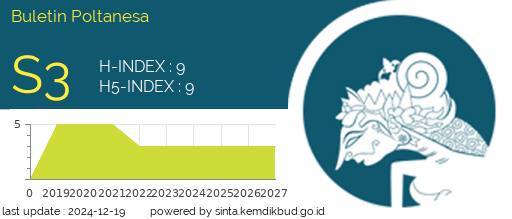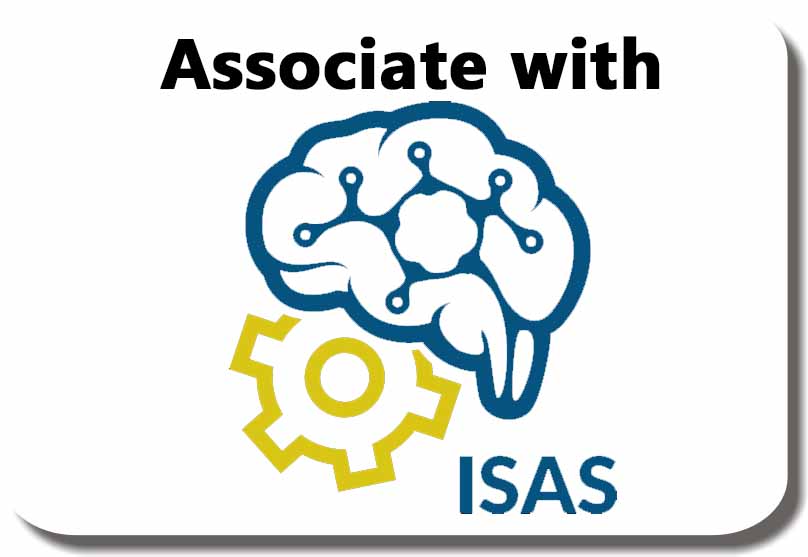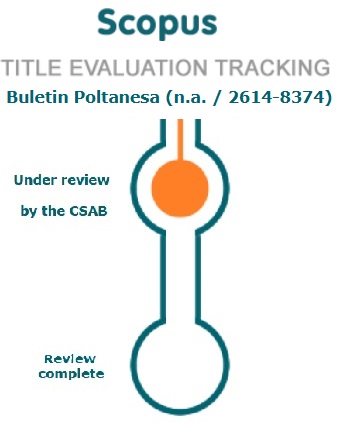A Bibliometric Review of Factors Causing Burn Out
DOI:
https://doi.org/10.51967/tanesa.v25i1.3041Keywords:
Burnout, Bibliometric Review, Causal Factors, Trends, Interdisciplinary Collaboration, Prevention StrategiesAbstract
Burnout has garnered significant attention across multiple scientific disciplines, particularly in health, management, and psychology. This bibliometric review aims to delve into the factors influencing burnout, while also highlighting emerging trends, influential authors, and potential avenues for future research. Utilizing systematic data collection and analysis through VOS Viewer software, this study uncovers key themes, research contributors, and interdisciplinary connections within the realm of burnout literature. The findings reveal a substantial body of research dedicated to burnout, with academia notably engaged in its exploration. However, a notable gap exists in the emphasis on causal factors. Predominant contributors to burnout identified include excessive workload, work-life imbalance, and inadequate social support systems. This underscores the pressing need for comprehensive interdisciplinary collaboration to formulate effective prevention and intervention strategies. The study advocates for the integration of disciplines such as psychology, human resource management, and health to address burnout holistically. By bridging these diverse fields, researchers, policymakers, and practitioners can develop more nuanced and effective approaches to tackle burnout's adverse effects in both workplace settings and broader contexts. In conclusion, this review offers valuable insights for stakeholders invested in mitigating burnout's detrimental impacts. By recognizing the multifaceted nature of burnout and fostering collaboration across disciplines, the groundwork is laid for more robust and sustainable solutions to combat this pervasive phenomenon.
References
Bakker, A. B., & Costa, P. L. (2014). Chronic job burnout and daily functioning: A theoretical analysis. Burnout Research, 1(3), 112–119. https://doi.org/10.1016/j.burn.2014.04.003
Bakker, A. B., Demerouti, E., & Sanz-Vergel, A. I. (2014). Burnout and Work Engagement: The JDR Approach. In Annual Review of Organizational Psychology and Organizational Behavior (Vol. 1, pp. 389–411). Annual Reviews Inc. https://doi.org/10.1146/annurev-orgpsych-031413-091235
Bianchi, R., & Schonfeld, I. S. (2016). Burnout is associated with a depressive cognitive style. Personality and Individual Differences, 100, 1–5. https://doi.org/10.1016/j.paid.2016.01.008
Bianchi, R., Schonfeld, I. S., & Laurent, E. (2015). Burnout-depression overlap: A review. In Clinical Psychology Review (Vol. 36, pp. 28–41). Elsevier Inc. https://doi.org/10.1016/j.cpr.2015.01.004
Boonen, A. J. H., de Koning, B. B., Jolles, J., & van der Schoot, M. (2016). Word Problem Solving in Contemporary Math Education: A Plea for Reading Comprehension Skills Training. Frontiers in Psychology, 7. https://doi.org/10.3389/fpsyg.2016.00191
Demerouti, E., Bakker, A. B., & Halbesleben, J. R. B. (2015). Productive and counterproductive job crafting: A daily diary study. Journal of Occupational Health Psychology, 20(4), 457–469. https://doi.org/10.1037/a0039002
Einar M. Skaalvik, & Sidsel Skaalvik. (2018). Job demands and job resources as predictors of teacher motivation and well-being. Social Psychology of Education, 21(5), 1251–1275. https://doi.org/10.1007/s11218-018-9464-8
Maslach, C., & Leiter, M. P. (2016a). Understanding the burnout experience: Recent research and its implications for psychiatry. World Psychiatry, 15(2), 103–111. https://doi.org/10.1002/wps.20311
Maslach, C., & Leiter, M. P. (2016b). Understanding the burnout experience: Recent research and its implications for psychiatry. World Psychiatry, 15(2), 103–111. https://doi.org/10.1002/wps.20311
Mucci, N., Giorgi, G., Cupelli, V., Gioffrè, P. A., Rosati, M. V., Tomei, F., Tomei, G., Breso-Esteve, E., & Arcangeli, G. (2015). Work-related stress assessment in a population of Italian workers. The Stress Questionnaire. Science of the Total Environment, 502, 673–679. https://doi.org/10.1016/j.scitotenv.2014.09.069
Mucci, N., Giorgi, G., Roncaioli, M., Perez, J. F., & Arcangeli, G. (2016). The correlation between stress and economic crisis: A systematic review. In Neuropsychiatric Disease and Treatment (Vol. 12, pp. 983–993). Dove Medical Press Ltd. https://doi.org/10.2147/NDT.S98525
Salmela-Aro, K., & Upadyaya, K. (2014). School burnout and engagement in the context of demands-resources model. British Journal of Educational Psychology, 84(1), 137–151. https://doi.org/10.1111/bjep.12018
Salvagioni, D. A. J., Melanda, F. N., Mesas, A. E., González, A. D., Gabani, F. L., & De Andrade, S. M. (2017). Physical, psychological and occupational consequences of job burnout: A systematic review of prospective studies. In PLoS ONE (Vol. 12, Issue 10). Public Library of Science. https://doi.org/10.1371/journal.pone.0185781
Schaufeli, W. B., & Taris, T. W. (2014). A critical review of the job demands-resources model: Implications for improving work and health. In Bridging Occupational, Organizational and Public Health: A Transdisciplinary Approach (Vol. 9789400756403, pp. 43–68). Springer Netherlands. https://doi.org/10.1007/978-94-007-5640-3_4
Shanafelt, T. D., Hasan, O., Dyrbye, L. N., Sinsky, C., Satele, D., Sloan, J., & West, C. P. (2015). Changes in Burnout and Satisfaction with Work-Life Balance in Physicians and the General US Working Population between 2011 and 2014. Mayo Clinic Proceedings, 90(12), 1600–1613. https://doi.org/10.1016/j.mayocp.2015.08.023
Sirois, F. M., & Molnar, D. S. (2017). The psychology of perfectionism: Theory, research, applications. In The Psychology of Perfectionism: Theory, Research, Applications. Taylor and Francis. https://doi.org/10.4324/9781315536255
Tarafdar, M., Cooper, C. L., & Stich, J.-F. (2019). The technostress trifecta-techno eustress, techno distress and design: Theoretical directions and an agenda for research THE TECHNOSTRESS TRIFECTA-TECHNO EUSTRESS, TECHNO DISTRESS AND DESIGN: AN AGENDA FOR RESEARCH. Information Systems Journal Vo, 29(1), 6–42. https://doi.org/10.1111/isj.12169ï
van Eck, N. J., & Waltman, L. (2017). Citation-based clustering of publications using CitNetExplorer and VOSviewer. Scientometrics, 111(2), 1053–1070. https://doi.org/10.1007/s11192-017-2300-7
van Woerkom, M., Oerlemans, W., & Bakker, A. B. (2016). Strengths use and work engagement: a weekly diary study. European Journal of Work and Organizational Psychology, 25(3), 384–397. https://doi.org/10.1080/1359432X.2015.1089862
West, C. P., Dyrbye, L. N., Erwin, P. J., & Shanafelt, T. D. (2016). Interventions to prevent and reduce physician burnout: a systematic review and meta-analysis. The Lancet, 388(10057), 2272–2281. https://doi.org/10.1016/S0140-6736(16)31279-X
Downloads
Published
How to Cite
Issue
Section
License
Copyright (c) 2024 Buletin Poltanesa

This work is licensed under a Creative Commons Attribution-ShareAlike 4.0 International License.
The copyright of this article is transferred to Buletin Poltanesa and Politeknik Pertanian Negeri Samarinda, when the article is accepted for publication. the authors transfer all and all rights into and to paper including but not limited to all copyrights in the Buletin Poltanesa. The author represents and warrants that the original is the original and that he/she is the author of this paper unless the material is clearly identified as the original source, with notification of the permission of the copyright owner if necessary.
A Copyright permission is obtained for material published elsewhere and who require permission for this reproduction. Furthermore, I / We hereby transfer the unlimited publication rights of the above paper to Poltanesa. Copyright transfer includes exclusive rights to reproduce and distribute articles, including reprints, translations, photographic reproductions, microforms, electronic forms (offline, online), or other similar reproductions.
The author's mark is appropriate for and accepts responsibility for releasing this material on behalf of any and all coauthor. This Agreement shall be signed by at least one author who has obtained the consent of the co-author (s) if applicable. After the submission of this agreement is signed by the author concerned, the amendment of the author or in the order of the author listed shall not be accepted.











